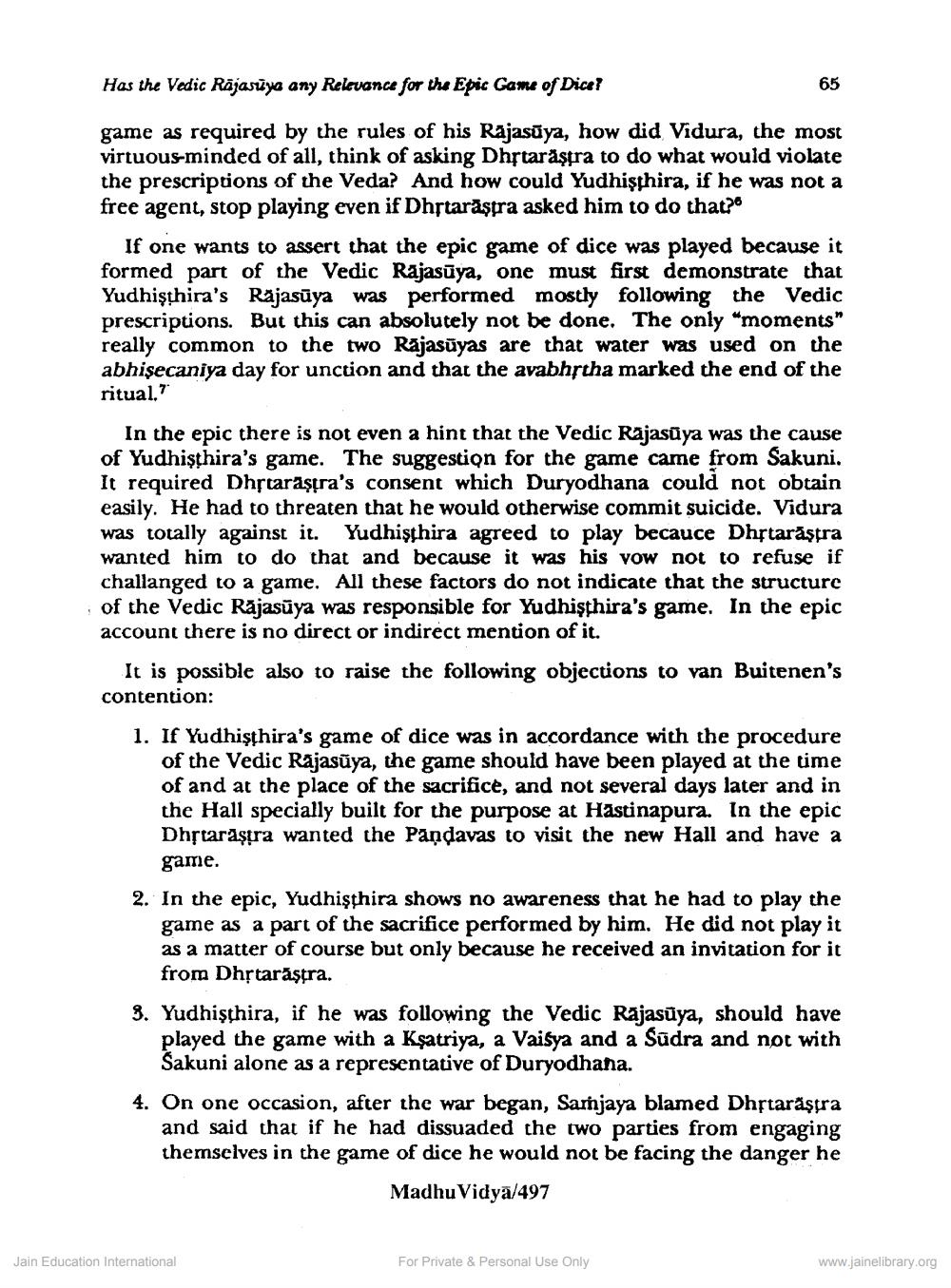________________
Has the Vedic Rājasiya any Relevance for the Epic Game of Dice!
65
game as required by the rules of his Rajasūya, how did Vidura, the most virtuous-minded of all, think of asking Dhstaraştra to do what would violate the prescriptions of the Veda? And how could Yudhisthira, if he was not a free agent, stop playing even if Dhstarăstra asked him to do that?
If one wants to assert that the epic game of dice was played because it formed part of the Vedic Rajasūya, one must first demonstrate that Yudhişthira's Rajasūya was performed mostly following the Vedic prescriptions. But this can absolutely not be done. The only "moments" really common to the two Rajasūyas are that water was used on the abhişecaniya day for unction and that the avabhstha marked the end of the ritual."
In the epic there is not even a hint that the Vedic Rajasûya was the cause of Yudhisthira's game. The suggestion for the game came from Sakuni. It required Dhstaraştra's consent which Duryodhana could not obtain easily. He had to threaten that he would otherwise commit suicide. Vidura was totally against it. Yudhişthira agreed to play becauce Dhstarastra wanted him to do that and because it was his vow not to refuse if challanged to a game. All these factors do not indicate that the structure of the Vedic Rājasūya was responsible for Yudhisthira's game. In the epic account there is no direct or indirect mention of it.
It is possible also to raise the following objections to van Buitenen's contention: 1. If Yudhişthira's game of dice was in accordance with the procedure
of the Vedic Rajasūya, the game should have been played at the time of and at the place of the sacrifice, and not several days later and in the Hall specially built for the purpose at Hastinapura. In the epic Dhstaraştra wanted the Pandavas to visit the new Hall and have a
game. 2. In the epic, Yudhisthira shows no awareness that he had to play the
game as a part of the sacrifice performed by him. He did not play it as a matter of course but only because he received an invitation for it from Dhstarāştra.
3. Yudhişthira, if he was following the Vedic Rajasūya, should have
played the game with a Ksatriya, a Vaisya and a Sudra and not with
Sakuni alone as a representative of Duryodhana. 4. On one occasion, after the war began, Sanjaya blamed Dhstaraştra
and said that if he had dissuaded the two parties from engaging themselves in the game of dice he would not be facing the danger he
Madhu Vidyā/497
Jain Education International
For Private & Personal Use Only
www.jainelibrary.org




